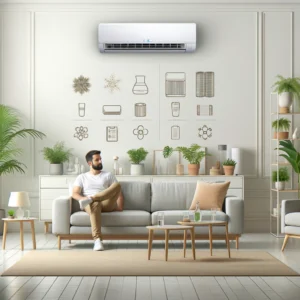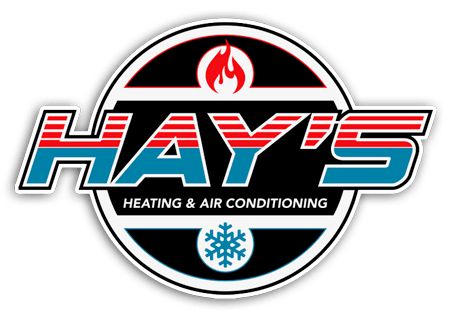Air conditioning (AC) is a modern convenience that offers relief from hot weather, creates comfortable living environments, and supports health by maintaining optimal indoor temperatures. However, concerns about the potential health impacts of AC use have led many to question whether it can make you sick. This article will address common questions and misconceptions about air conditioning and health, providing clear, detailed answers to help you make informed decisions about your AC usage.

Can Air Conditioning Make You Sick?
While air conditioning itself doesn’t inherently make you sick, certain factors associated with its use can contribute to health issues. Poorly maintained AC units can harbor dust, mold, and bacteria, which can be circulated throughout your home, leading to respiratory problems, allergies, and other health issues in addition to needing ac repair. Additionally, excessive cooling can cause discomfort and exacerbate certain conditions, such as dry skin and respiratory issues.
Factors Contributing to AC-Related Illnesses
- Lack of Maintenance: Dirty filters and coils can harbor dust, mold, and bacteria.
- Humidity Levels: Improper humidity control can lead to dry air or excessive moisture, both of which can cause health problems.
- Temperature Fluctuations: Sudden changes in temperature can stress the body, leading to discomfort and illness.
Can Air Conditioning Make You Cough?
Coughing can be a common issue associated with air conditioning use. The primary reasons for this are dry air and the circulation of allergens and irritants.
Causes of Coughing from AC
- Dry Air: AC systems can reduce indoor humidity, leading to dry air that irritates the throat and respiratory tract.
- Allergens: Dust, pollen, and other allergens can be circulated by the AC, triggering respiratory responses.
Tips to Prevent AC-Related Coughing
- Use a humidifier to maintain optimal humidity levels.
- Regularly clean or replace AC filters.
- Keep your AC system well-maintained to reduce allergen buildup.
Can Air Conditioning Cause Carbon Monoxide?
Air conditioning units themselves do not produce carbon monoxide. However, if your AC system is integrated with a furnace or other combustion-based heating systems, there is a potential risk.
Preventing Carbon Monoxide Issues
- Ensure proper ventilation for all combustion-based systems.
- Regularly inspect and maintain your heating and cooling systems.
- Install carbon monoxide detectors in your home.
Can Air Conditioning Cause Nose Bleeds?
Dry air from air conditioning systems can lead to nosebleeds, especially in individuals prone to this condition.
Preventive Measures for Nosebleeds
- Use a humidifier to add moisture to the air.
- Stay hydrated by drinking plenty of water.
- Apply a nasal saline spray to keep nasal passages moist.
Can Air Conditioning Cause Mold?
Mold can develop in air conditioning systems if they are not properly maintained. Mold thrives in damp, dark environments, and AC units can provide such conditions if moisture accumulates.
Preventing Mold in AC Systems
- Regularly clean and service your AC unit.
- Ensure proper drainage to prevent water accumulation.
- Use a dehumidifier to control indoor humidity levels.
Can Air Conditioning Cause Allergies?
Air conditioning can exacerbate allergies by circulating allergens like dust, pollen, and pet dander throughout your home.
Reducing Allergens in AC
- Use high-quality air filters and replace them regularly.
- Clean ducts and vents to remove accumulated dust and debris.
- Consider using an air purifier to reduce airborne allergens.
Can Air Conditioning Cause Sore Throat?
A sore throat can result from prolonged exposure to dry, cold air from air conditioning systems.
Preventive Tips for Sore Throat
- Maintain indoor humidity levels with a humidifier.
- Avoid setting the temperature too low.
- Drink warm fluids to soothe the throat.
Can Air Conditioning Cause Pneumonia?
While air conditioning itself does not directly cause pneumonia, certain conditions associated with AC use can increase the risk of respiratory infections.
Risk Factors and Prevention
- Ensure AC units are clean and free of mold and bacteria.
- Avoid drastic temperature changes to reduce stress on the respiratory system.
- Seek medical advice if experiencing persistent respiratory symptoms.
Can Air Conditioning Explode?
The idea of air conditioners exploding is largely a myth. However, certain malfunctions can pose safety risks.
Safety Measures to Prevent AC Hazards
- Regular maintenance and inspections to identify potential issues.
- Promptly addressing any signs of malfunction, such as strange noises or odors.
- Ensuring proper installation and adherence to safety guidelines.
Can Air Conditioning Cause Dry Eyes?
Exposure to the cold, dry air from air conditioning systems can lead to dry eyes, causing discomfort and irritation.
Tips to Relieve and Prevent Dry Eyes
- Use artificial tears or eye drops to keep eyes moist.
- Blink frequently and take breaks from screens to reduce eye strain.
- Adjust AC settings to maintain moderate humidity levels.
Can Air Conditioning Make You Sneeze?
Sneezing can be triggered by allergens and irritants circulated by air conditioning systems.
Minimizing Sneezing from AC
- Regularly replace air filters to reduce airborne allergens.
- Clean ducts and vents to prevent dust buildup.
- Maintain proper humidity levels to reduce irritation.
Can Air Conditioning Cause Headaches?
Headaches can occur due to factors associated with air conditioning use, such as dehydration and temperature changes.
Preventive Measures for Headaches
- Stay hydrated by drinking plenty of water.
- Avoid setting the temperature too low to prevent excessive cooling.
- Ensure adequate ventilation to maintain fresh air circulation.
Can Air Conditioning Have Mold?
Mold can develop in air conditioning systems, posing health risks to occupants.
Identifying and Preventing Mold
- Look for visible signs of mold around vents and units.
- Regularly clean and service your AC system.
- Use dehumidifiers to control indoor humidity levels.
Can Air Conditioning Spread COVID-19?
There is concern about the potential for air conditioning systems to spread COVID-19, especially in enclosed spaces.
Recommendations from Health Authorities
- Ensure proper ventilation in indoor spaces.
- Use HEPA filters to capture airborne particles.
- Follow guidelines from health authorities regarding indoor air quality and ventilation.
Best Practices for Using AC During a Pandemic
- Maintain good indoor air quality with regular AC maintenance and cleaning.
- Increase ventilation by opening windows and using fans.
- Follow hygiene and social distancing guidelines to reduce the risk of virus transmission.
Takeaway
Air conditioning offers numerous benefits, but it can also contribute to health issues if not properly maintained. By understanding the potential risks and taking preventive measures, you can enjoy the comfort of AC without compromising your health. Regular maintenance, proper humidity control, and staying informed about best practices can help ensure that your air conditioning system supports a healthy living environment. We highly recommend contacting your local ac contractor or if you’re looking for Durham, NC AC repair be sure to contact Hays.








